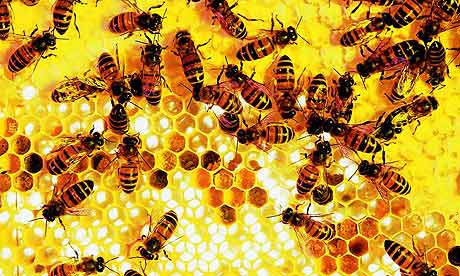TOP STORIES New Report Details Historic Mass Extinction Of Amphibians; Humans Worsen Spread Of Deadly Emerging Infectious Disease
New Report Details Historic Mass Extinction Of Amphibians; Humans Worsen Spread Of Deadly Emerging Infectious Disease
ScienceDaily - www.sciencedaily.com (Source: San Francisco State University)
12 Aug 2008
Image courtesy of V. Vredenburg
Amphibians, reigning survivors of past mass extinctions, are sending a clear, unequivocal signal that something is wrong, as their extinction rates rise to unprecedented levels, according to a paper published by the Proceedings of the National Academy of Sciences (PNAS). Humans are exacerbating two key natural threats – climate change and a deadly disease that is jumping from one species to another. The authors confront the question of whether Earth is experiencing its sixth mass extinction and suggest that amphibians, as a case study for terrestrial life, provide a clear answer. "A general message from amphibians is that we may have little time to stave off a potential mass extinction," write co-authors Vance T. Vredenburg, assistant professor of biology at San Francisco State University, and David B. Wake, curator of herpetology in the Museum of Vertebrate Zoology at University of California, Berkeley, in the August 12 issue of PNAS.
Cited Journal Article
>>>Are we in the midst of the sixth mass extinction? A view from the world of amphibians. PNAS. 2008 Aug 11; [ePub ahead of print.
Success against virus in fish
Watertown Daily Times - www.watertowndailytimes.com
12 Aug 2008
N Madsen
VHS WEAPON: Researchers find iodine solution effective on eggs
Researchers with the state Department of Environmental Conservation and Cornell University, Ithaca, have found that an iodine disinfectant solution can protect walleye eggs from a deadly fish disease if the virus is introduced from the outside. Stephen R. LaPan, Lake Ontario unit leader for DEC in Cape Vincent, said this means they may be able to protect the fish from viral hemorrhagic septicemia. "If there is external introduction, we can kill it," he said. Several DEC fisheries pump water from the St. Lawrence River, which has multiple species known to be infected with VHS.
 Honeybee deaths reaching crisis point
Honeybee deaths reaching crisis pointGuardian Unlimited - www.guardian.co.uk
12 Aug 2008
A Benjamin
Image courtesy of Reso/Rex Features
Area: Britain, United Kingdom - Map It

Britain's honeybees have suffered catastrophic losses this year, according to a survey of the nation's beekeepers, contributing to a shortage of honey and putting at risk the pollination of fruits and vegetables. The survey by the British Beekeepers' Association (BBKA) revealed that nearly one in three of the UK's 240,000 honeybee hives did not survive this winter and spring. The losses are higher than the one in five colonies reported dead earlier this year by the government after 10% of hives had been inspected. The BBKA president, Tim Lovett, said he was very concerned about the findings: "Average winter bee losses due to poor weather and disease vary from between 5% and 10%, so a 30% loss is deeply worrying.
 West Nile Virus found in Saugus crow; spraying is planned
West Nile Virus found in Saugus crow; spraying is plannedWicked Local - www.wickedlocal.com/saugus
11 Aug 2008
Area: Saugus, Massachusetts, United States - Map It

A crow found on Third Street in Saugus has tested positive for West Nile Virus, leading health officials to authorize spraying chemicals in the affected area. Director of Public Health Frank Giacalone said a call came in Aug. 5 for a wounded crow on Third Street. The responding animal control officer discovered the crow fluttering around and brought it to a quarantine area, where the bird died and was sent to the state lab for testing. Last Friday the Massachusetts Department of Public Health contacted Giacalone to announce the crow did test positive for WNV.
Related News
>>>Virus-stricken bird found in city - Fall River, Massachusetts, USA - Map It

>>>Dead crow had West Nile - Bracebridge, Ontario, Canada - Map It

>>>West Nile virus has spread across state - Massachusetts, USA - Map It

DNR: Michigan birds killed by botulism
Chicago Tribune - www.chicagotribune.com (Source: Associated Press)
08 Aug 2008
Area: Ludington State Park, Michigan, USA - Map It

Michigan officials say botulism is responsible for the deaths of birds in Ludington State Park last month. It's the first positive confirmation of Type E botulism in 2008. The disease has spread the farthest south along the Lake Michigan shoreline since the disease was detected in birds in 2006.
OTHER WILDLIFE HEALTH RELATED NEWS
Image courtesy of Charles Foley, Wildlife Conservation Society
- Bison quarantine program advances to 3rd phase [includes video]






No comments:
Post a Comment